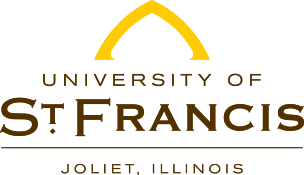USF recognizes that college level learning can be achieved in non-traditional settings. Learners will enroll in an online portfolio course (GENS 100) to create a portfolio that is comparable to a course, or courses, at USF and submit for faculty review
Acceptable Credit
Transfer credit will be accepted from institutions that are accredited or in candidacy status by one of the regional accrediting institutions.
The University of St. Francis was named a military friendly school for the second year in a row by Victory Media, the premier media entity for military personnel transitioning into civilian life. For basic military training, students receive 6 credit hours.
- College Level Examination Program (CLEP)
- DANTES Subject Standardized Tests (DSSTs)
- Advanced Placement Program (AP)
- Defense Language Proficiency Tests (DLPTs)
- Educational Testing Service (ETS)
- Challenge Exams Challenge exams are an option for BSN Fast Track students who prefer to study a subject on their own, and receive credit by successfully passing an exam. Challenge exams are available in nursing elective courses and for nutrition in that program
Completion of professional certification or training may make you eligible for college credit. USF awards credit for corporate training programs with a transcript from the American Council on Education (ACE). In addition, credit will be awarded for:
- Illinois Basic Police Officer Training
- Advanced medical qualifications in Mammography, Computed tomography, MRI, Cardiovascular-Interventional Technology, Quality Management, Sonography, Bone Density, and Radiation Therapy
- USF students who are certified through the American Health Information Management Association (AHIMA). The award of such credit includes consideration of the student’s current, relevant professional experience.
- Graduate credit can be awarded for PMP certification, and CPLP certification from American Society of Training & Development
Prior Learning Assessment Program
The Prior Learning Assessment Program offers a way for earning credit granted for verifiable college–level learning acquired through life or work experiences that can be documented in a portfolio and is equivalent to a college course (Experiential learning, training, employment, and certifications). It is credit that does not duplicate any previously earned credit.
- Evaluation of the application and portfolio process is a non-refundable $200 fee charged at the time you are registered for the Prior Learning Portfolio Development online course.
- The cost for posting credit to your transcript is $50.00 per credit hour awarded.
A maximum of 33 semester hours may be earned and includes credit for CLEP, DANTES, Military Credit and other approved forms of credit.
Prior Learning Assessment Program Student Tracks:
Prior Learning Assessment Program Documents
The following documents are Adobe PDF files. If you need Adobe software, click here.
How does the portfolio process begin?
- Send all official transcripts and a copy of your resume to your admissions counselor.
- The Academic Advising Center will evaluate your transcripts and review your resume.
- The Academic Advising Center will register you for your first semester courses.
- The coordinator of Prior Learning will contact you during your first semester to schedule a phone appointment to discuss the portfolio process in detail. Education majors will be contacted prior to the start of your first semester.
- During the appointment, the prior learning program will be discussed and if recommended, you will be registered into the non-credit GENS 100 Prior Learning Portfolio Development course.
How can the Coordinator for Prior Learning assist me?
- During your interview, the Coordinator for Prior Learning will review your past experiences, learning, skills, employment, training, and help in determining courses that fit your experiences.
- The coordinator will discuss the competencies for the courses and help you determine whether you should apply for Prior Learning credit.
- Once you receive the experiential checklists, it will be your responsibility to assess your knowledge as to whether you have attained 90 percent of the knowledge listed on the checklists.
- You will follow-up with the coordinator to discuss enrollment into the Portfolio Development course.
- While enrolled in the Portfolio Development course, the coordinator will assist you through the portfolio development process and provide initial review of documents.
How much time do I have to complete the Prior Learning Portfolio?
You will be enrolled into the Prior Learning Portfolio course during your second semester (Education majors during your first semester). You will have the entire semester to complete and submit your portfolio for review. The portfolio process must be complete before you have acquired a maximum of 96 semester hours (this includes transfer and university credit).
What is the portfolio review process?
- The portfolio will be reviewed by the Coordinator for general competencies.
- The portfolio will be submitted to the appropriate faculty member for review.
- The faculty member generally has two weeks to complete the review of each course.
- The Prior Learning Board gives final approval of credit.
What happens after the review?
You will receive notification as to the results of the review. These results may include credit for all or some of the courses requested for credit. The results may also include suggestions for a “rewrite” for a course that credit has been denied. One “rewrite” is allowed.
For additional questions, please contact your personal admission counselor by clicking here for transfer students, or by clicking here for Adult Degree Completion Students, or by phone at 800- 735-7500.
How does the portfolio process begin?
- Send all official transcripts and a copy of your resume to your admissions counselor.
- The Academic Advising Center will evaluate your transcripts and review your resume.
- The Academic Advising Center will register you for your first semester courses.
- The coordinator of Prior Learning will contact you during your first semester to schedule a phone appointment to discuss the portfolio process in detail. Education majors will be contacted prior to the start of your first semester.
- During the appointment, the prior learning program will be discussed and if recommended, you will be registered into the non-credit GENS 100 Prior Learning Portfolio Development course.
How can the Coordinator for Prior Learning assist me?
- During your interview, the Coordinator for Prior Learning will review your past experiences, learning, skills, employment, training, and help in determining courses that fit your experiences.
- The coordinator will discuss the competencies for the courses and help you determine whether you should apply for Prior Learning credit.
- Once you receive the experiential checklists, it will be your responsibility to assess your knowledge as to whether you have attained 90 percent of the knowledge listed on the checklists.
- You will follow-up with the coordinator to discuss enrollment into the Portfolio Development course.
- While enrolled in the Portfolio Development course, the coordinator will assist you through the portfolio development process and provide initial review of documents.
How much time do I have to complete the Prior Learning Portfolio?
You will be enrolled into the Prior Learning Portfolio course during your second semester (Education majors during your first semester). You will have the entire semester to complete and submit your portfolio for review. The portfolio process must be complete before you have acquired a maximum of 96 semester hours (this includes transfer and university credit).
What is the portfolio review process?
- The portfolio will be reviewed by the Coordinator for general competencies.
- The portfolio will be submitted to the appropriate faculty member for review.
- The faculty member generally has two weeks to complete the review of each course.
- The Prior Learning Board gives final approval of credit.
What happens after the review?
You will receive notification as to the results of the review. These results may include credit for all or some of the courses requested for credit. The results may also include suggestions for a “rewrite” for a course that credit has been denied. One “rewrite” is allowed.
For additional questions, please contact your personal admission counselor by clicking here for transfer students, or by clicking here for Adult Degree Completion Students, or by phone at (800) 735-7500.

